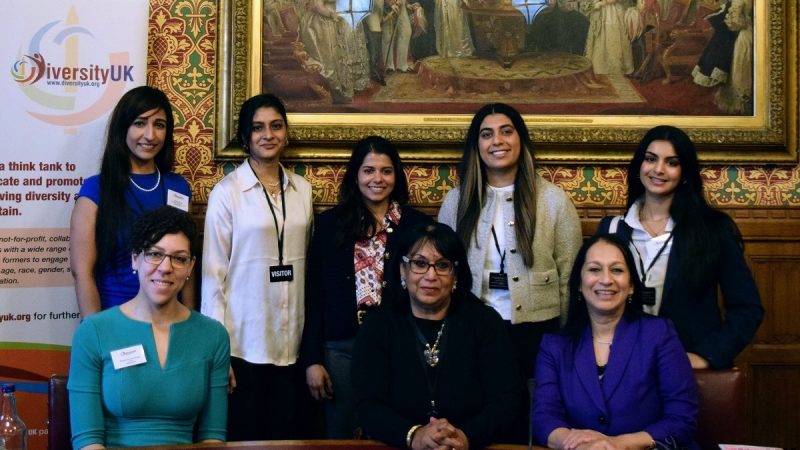77% of working mothers discriminated against

The Equality and Human Rights Commission is today calling for the Government to take urgent action as new research suggests more than three quarters of pregnant women and new mothers, the equivalent of 390,000 women, experience negative and potentially discriminatory treatment at work each year. The Commission is today publishing wide-ranging proposals for change, including ensuring women have proper access to legal redress, as it publishes its final research report today on experiences of pregnancy and maternity discrimination at work.
The comprehensive research, carried out in partnership with the Department for Business, Innovation and Skills, shows despite 77% of working mothers reporting potentially discriminatory or negative experiences, only around a quarter (28%) raised the issue with their employer, only 3% went through their employer’s internal grievance procedure, and less than 1% pursued a claim to the employment tribunal.
The survey of more than 3,000 mothers and 3,000 employers shows a range of reasons for this including the financial cost of pursuing a claim, fear of negative repercussions at work, lack of information about their rights, and stress and tiredness. Since the introduction in 2013 of tribunal fees of up to £1,200, the number of sex discrimination cases has dropped by 76% and pregnancy-related cases fell by 50%.
The research also reveals the majority of employers (70%) thought a woman should declare at recruitment stage if they were pregnant, and a quarter thought that it was reasonable to question women of childbearing age at interview about their plans to have children. In addition to this, three in four (77%) mothers that were unsuccessful in their job interviews undertaken while pregnant (where the employer had known about their pregnancy) felt it had affected their chances of success.
Recommendations on Pregnancy and Maternity Rights
The Commission is today calling for the Government to:
- take more effective steps to prevent employers asking during the recruitment process about a woman’s pregnancy or her intention to have children;
- explore the feasibility of a collective insurance scheme to support small and medium sized employers to provide enhanced pay and cover for maternity leave, based on a successful model used in Denmark;
- make changes to the employment tribunal fee system to ensure that fees are not a barrier to accessing justice for pregnant women and new mothers;
- consider increasing from three to six months the time limit for a woman to bring an employment tribunal case involving pregnancy and maternity discrimination.
- While many employers value, and want to retain, the talent, skills and drive women contribute that make businesses productive, the research suggests that this does not always translate into positive experiences at work for pregnant women and new mothers.
In a drive to improve practice and prevent discrimination taking place, the Commission is also making a number of recommendations to improve leadership, management practice, information, and health and safety among employers.
These include;
- A joint communications campaign between Government, the Commission and business leaders to drive attitudinal and behavioural change by promoting the economic benefits of unlocking and retaining the talent of pregnant women and new mothers;
- Improving the advice and information available to help employers and employees understand their rights and obligations; and
- Improving health and safety management in the workplace so women are not forced to choose between their job and their health or the health of their unborn child.
Caroline Waters, Deputy Chair of the Equality and Human Rights Commission said: “We simply cannot ignore the true scale of the hidden discrimination that working mothers face. This is unacceptable in modern Britain, and urgent action is needed to ensure women are able to challenge discrimination and unfairness. This is why we are calling on Government to look at the barriers working pregnant women and mothers face in accessing justice.
“We want to make workplaces fairer for everyone and get rid of outdated practices like asking women during job interviews whether they intend to have children. For businesses to thrive, they need to harness the talents, skills and experience of all employees. We are calling on employers, regulatory bodies and the voluntary sector to make vital changes needed to improve the lived experiences of British workplaces so they are the best they can be for everyone.”
Lazy management imposes a "baby penalty"
Dianah Worman OBE, Diversity Adviser at the CIPD, the professional body for HR and people development, commented: "The findings of this rigorous research are shocking and should send alarm bells ringing across the business world. It shows many employers need to rethink how they recruit, retain and develop female talent. Besides the damage it causes to individuals, discrimination on this scale harms the UK economy which will only be able to reach its potential when it builds and sustains opportunities and choice for women to be as economically active as men.
“Lazy management which both overtly and covertly stops this from happening by imposing a baby penalty against pregnant women and those returning to work after they have had children is short-sighted and regressive. The findings are a wake-up call for UK management to pull its socks up and lose no time in doing so. Social expectations regarding the importance of diversity and inclusion are increasing and employers need to catch up with this reality. It is important that these findings help trigger action to turn the tide on the bad practices they expose.”
The new findings, from the final phase of the Commission’s research, also show;
- Three quarters of the mothers who felt forced to leave their jobs each reported more than 10 different types of negative experiences;
- Half of mothers described a negative impact on their career, work status or job security, including not being informed about promotion opportunities, being denied training opportunities, being threatened with dismissal or put being under pressure to hand in their notice which, if scaled up to the general population, could affect 210,000 mothers a year;
- 4% of mothers reported they left their job as a result of health and safety risks which were not resolved; if scaled up to the general population this could affect 21,000 mothers a year;
- 67% of employers had not sought information or guidance on employment issues relating to pregnancy and maternity and over half (55%) provided no guidelines, training or support to managers on managing pregnancy and maternity; and
- Only 4% of employers had sought information on issues such as time off for antenatal appointments or dealing with flexible working requests. However, 10% of the mothers surveyed experienced problems when they needed time off for antenatal appointments and 51% experienced negative consequences after approval of a flexible working request.
Download the full research report
Download the full recommendations report
Equality Act 2010
Discrimination at work against pregnant women and those on maternity leave is unlawful under the Equality Act 2010. It is unlawful for an employer to treat a woman unfavourably because she is pregnant, is ill because of her pregnancy, is on maternity leave, has taken maternity leave or has tried or intends to take maternity leave.
Examples of discrimination include;
- Making a woman redundant because she is pregnant, or on maternity leave;
- Not offering the same training or promotion opportunities to a woman because she is pregnant or on maternity leave;
- Dismissing a woman because of pregnancy-related sickness;
- Dismissing a woman on maternity leave shortly before she is due to return to work (or after she returns) and keeping on the person covering her maternity leave instead; and
- Refusing a pregnant employee reasonable time off for ante-natal appointments.




